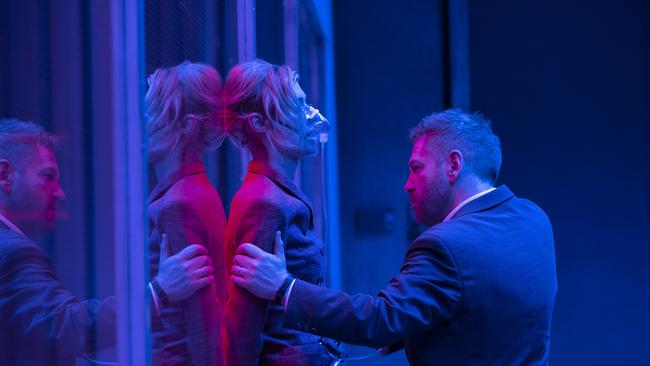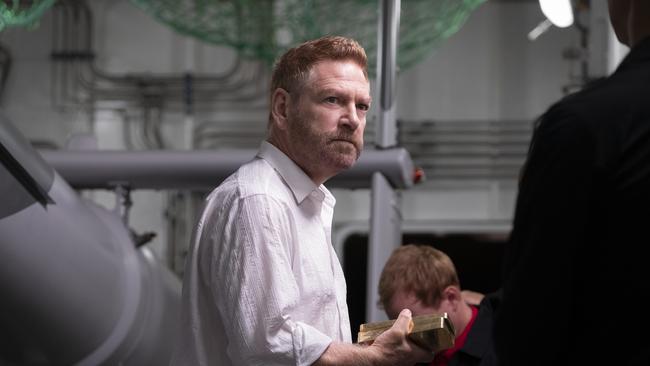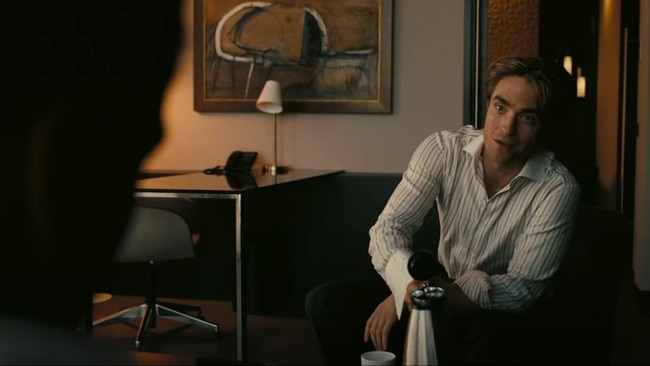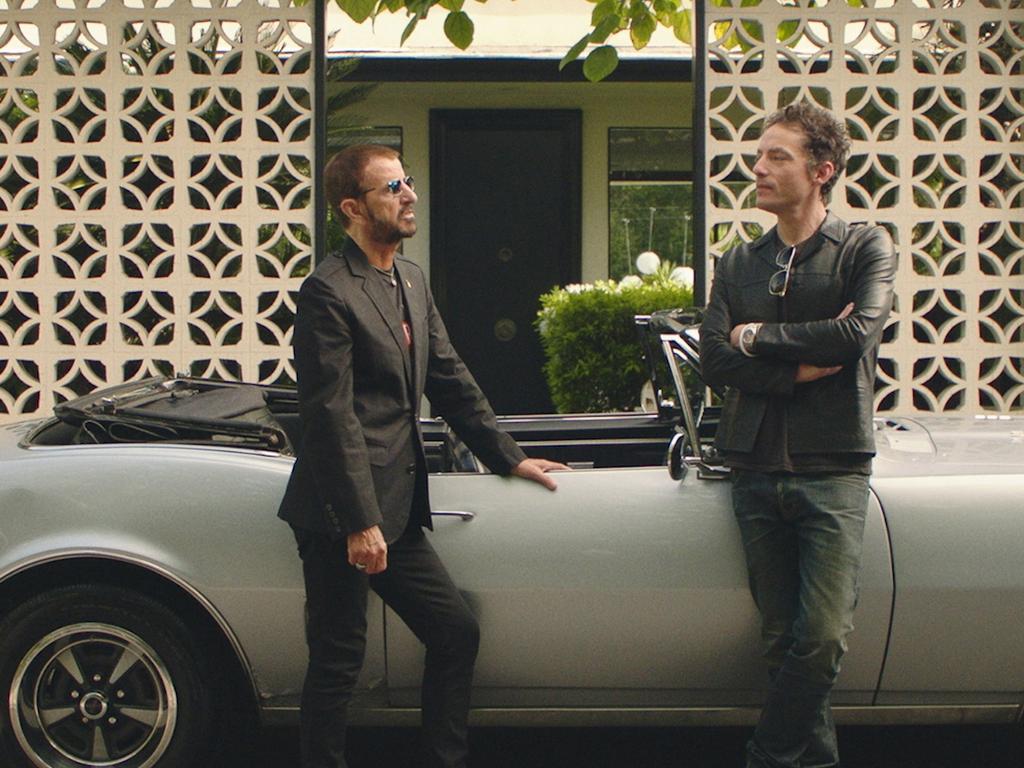Kenneth Branagh reveals mysteries of Christopher Nolan’s movie Tenet
As with any new Christopher Nolan release, Tenet’s plot details are carefully guarded, but star Kenneth Branagh reveals what many have been waiting for.

Kenneth Branagh has made two movies with Christopher Nolan and his initial involvement has been similar on each occasion: a phone call out of the blue from the director, a meeting, the delivery of a script, a quick decision. In the first instance, Branagh had a pretty good idea about the subject matter of the movie: it was a World War II drama, Dunkirk. But the second meeting was for Tenet.
What exactly is Tenet about? As always, its plot details are carefully guarded. An aura of secrecy and speculation has preceded virtually every new Nolan release, but what is a little different now is the additional uncertainty around the timing of its arrival. In the era of COVID-19, when should a much-anticipated blockbuster be released theatrically across the world? What is the right, appropriate, even responsible moment? It has been postponed more than once, and now it’s coming to Australian cinemas — apart from those in Victoria — on August 27. It will have a US release a week later.
Branagh, of course, is economical with details about the storyline but happy to describe Tenet, in terms that will surprise no one, as a work “in the tradition of films of his like Inception and Interstellar, where there is a tremendous concentration on the concept of time”. After all, Nolan has made films about time and dreams, time and gravity, time and memory, narrative time. But in Tenet there’s another notion that he’s closely concerned with, too. What it also focuses on, Branagh says, “is the concept, in a way, of hell”.

Tenet stars John David Washington, Robert Pattinson and Australian Elizabeth Debicki. What we know of it can be gleaned from cryptic, eventful trailers and teasers.
It is a story of international espionage in which the stakes are extremely high: the potential for World War III or “something much worse”. Washington, playing an American operative, teams up with Pattinson — who has said he used journalist Christopher Hitchens as a vocal and sartorial inspiration. The plot involves temporal manipulation. Not time travel, we are informed, but time inversion. And at one point a character played by Dimple Kapadia tells Washington: “We’re being attacked by the future.”
Trailers and a prologue have presented us with ferocious action sequences, some of which demonstrate the operation of time in reverse: chases on the high seas and the highway; a dramatic siege at an opera house; hand-to-hand combat; a gun that catches rather than fires a bullet. And the meaning of the palindromic title? Washington is told at one point: “All I have for you is a word. Tenet. It’ll open some of the right doors. And some of the wrong ones, too. Use it carefully.”
One commentator analysing the trailers suggests that to understand Tenet, you might need to be across all the ramifications of the second law of thermodynamics. If this was something Branagh raised with Nolan, he’s not prepared to go into it. What he will say is that the stakes in Tenet’s scenario are very high.
Nolan “is making his own very entertaining, very complex investigation of what could be the most nightmarish scenario for the human race”. It explores what could happen, Branagh says, “not only if a destructive power is unleashed but also if that was mixed up with a kind of really complicated, sticky relationship to eternity, and to the idea of some hellish consequences really being infinite”.

In this hellish scenario, Branagh’s character is not on the side of the angels. “He is certainly the devil,” Branagh says. “No doubt about that.”
When Nolan called about Dunkirk, Branagh was in the middle of a West End production of The Winter’s Tale. Nolan came to see the show and they talked about it afterwards. “It was the perfect one for him to see,” Branagh says. Not only did Nolan appreciate Shakespeare’s approach to time and themes of loss, “I also felt that he was at a point in his life when his intellectual interests were somehow joining forces with a kind of emotional experience. And quite a lot of that seemed to find its way into Dunkirk.”
Branagh played Commander Bolton, whose task was to lead the evacuation of British troops from Normandy. He thoroughly enjoyed making the film, he says. And when Nolan called again, “the experience on Dunkirk meant that I would have said yes without reading it, to be perfectly honest”. But he didn’t, of course. The pair went through the same process once more. “Chris rang me and said, could you be available at this time? I actually said: ‘It might be a little problematic with some other things I’m involved with but I can investigate.’ He said, ‘Could you do that right away? And if you do, can I come and see you tomorrow night at the same time?’ ”
There was something about this mixture of forthrightness and cloak-and-dagger intrigue that Branagh found appealing. “So 24 hours, later I said: ‘Yes, on the dates you mentioned, I could be free.’ And he showed up at my front door with the script under his arm. He talked a little bit about the script, and drank a lot of tea.
“(Nolan) drinks more tea than any other expat Brit on the planet, I suspect.”
Branagh read the script once that night and twice the next day, and said yes. “I had many, many questions, but I was thrilled to be able to do it. And the reason I read it three times before I met Chris again or spoke to him again is that it was just so complex, no question about that.”
With Dunkirk, Nolan had a specific conception of the film, of showing the evacuation from alternative perspectives of land, sea and air, each one with a different time frame. But it was anchored in historical fact. “Dunkirk allowed one, regardless of what was in Chris’s screenplay, to go to historical accounts, biographies of people who might have been close to the character, models for the character,” Branagh says. “It was obviously possible to visit the real place. We shot in the real place. Certainly [there] was a great deal of work that you could do to satisfy your own actorly sort of Sherlock Holmesery.”
With Tenet it was different. The screenplay is “a page turner, but it has a Rubik’s cube, Russian doll feel, a sort of onion-peeling quality”, he says. Its mysteries are not straightforward or readily resolved. “(Nolan) sets himself a kind of puzzle, but it’s an emotional puzzle. It’s not just an intellectual thing. And the doing of it, I think, often surprised him (during the filming process).”
Branagh’s villainous character is a Russian national. Nolan had one reservation, he told Branagh. “He said — others might not say this about me — I might possibly be too much of a nice guy. So from the word go, his repeated and intensely expressed instruction for me was that the character I was playing was without redeeming features. That he was in touch with a darkness that one should not try to understand.”
That’s not an easy way to approach a role, Branagh notes. “Often actors playing so-called evil parts — and I’ve done this myself — find themselves saying, ‘You look for the humanity of this person’. And you try to start from the base that perhaps they don’t regard themselves as evil, or whatever. But in this case I think Chris was very keen that I did not try to soften or understand this character from a compassionate or humane point of view.”
Nolan has written a character who is still a human being, Branagh adds. “But the ruthlessness and the sort of destructive ambition of this person is pretty breathtaking.”
When it came to Branagh’s final day of shooting, he recalls a conversation with the director. “We talked again about the desire for this character to be as dark as anything he had presented in any one of his films. He said, ‘I’ve seen all the dailies (raw, unedited footage from the day’s filming) now, and I’d like to confirm that you really seem to have got the memo abut how to play this part.”
Debicki plays his character’s estranged wife, one of many figures in the film, Branagh says, who pass between the light and the dark sides of humanity. He’s full of praise for the Australian as a performer. “It’s great to see an actor with the capacity for wit, emotion and strength who also has a really, really strong sense of humour.
“I worked in Australia when I was very young (in the 1984 miniseries A Boy in the Bush). It was a formative experience for me, and I recognise in her a lot of those things I really admired about Australia.
“Australians as movie stars are most interesting because they combine the capacity to be leading men and leading ladies with a wide range. They seem to have their feet on the ground … and a capacity to enjoy the process.”
As an actor who’s also a director — of films ranging from Hamlet to Thor, Much Ado About Nothing to Murder on the Orient Express — Branagh says it’s fascinating to watch Nolan at work. “Being directed by him is a sort of masterclass in directing.”
On set he is “a tremendously concentrated fella. Everybody’s there from seven o’clock in the morning, all the way through the day. All the actors are expected to be there at the same time, this is not the kind of experience where people are off in trailers, everybody’s actually together.
“He is also so completist, he’s probably one of three, four directors across my whole career who has been at all the costume fittings for the character, who is there in every part of the post-production: all of this, just as a matter of course.” One such filmmaker was Robert Altman, for whom Branagh starred in The Gingerbread Man (1997).
Altman, the actor recalls, was also particularly insistent on everyone getting together to watch the day’s filming.
“For Altman, the watching of dailies was confirming the fact that, as he said, ‘This is the whole movie: the experience of shooting it, and then the experience of seeing all the dailies,’ ” Branagh says. “ ‘It is not a single night, nine months from now where we gather on a pavement on Hollywood Boulevard and keep every finger crossed. It’s the whole experience and I wish us all to have that because this is what is meaningful, and this is how we’ll learn.’ ”
Tenet is released in Australia (except Victoria) on August 27.






To join the conversation, please log in. Don't have an account? Register
Join the conversation, you are commenting as Logout